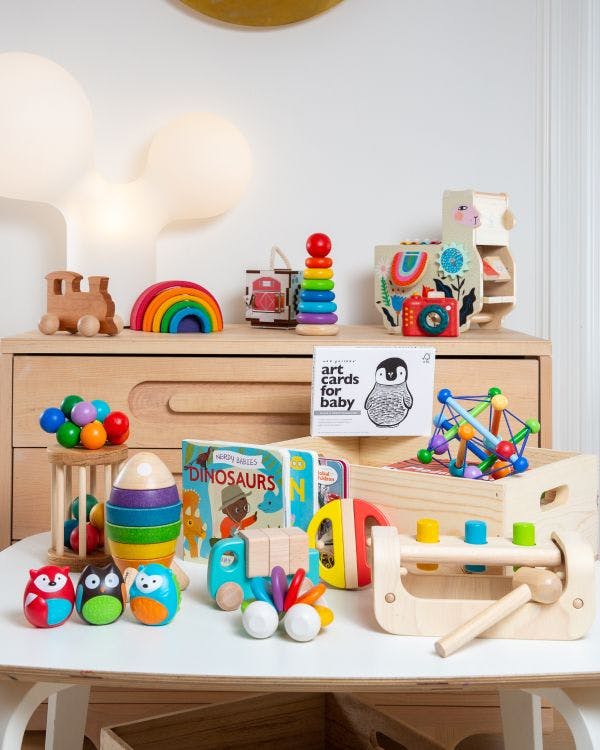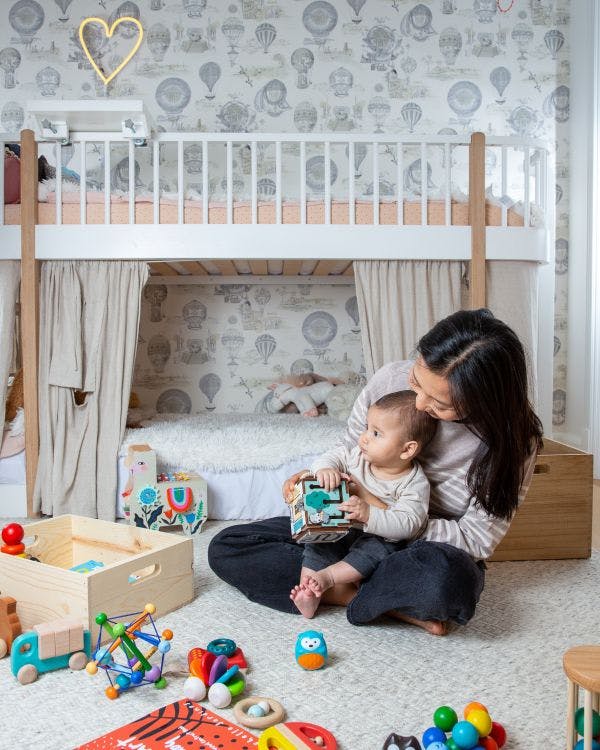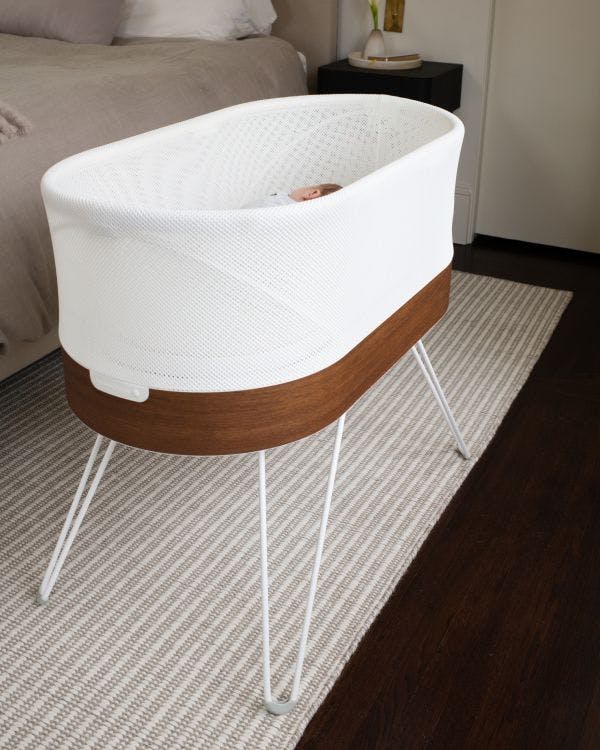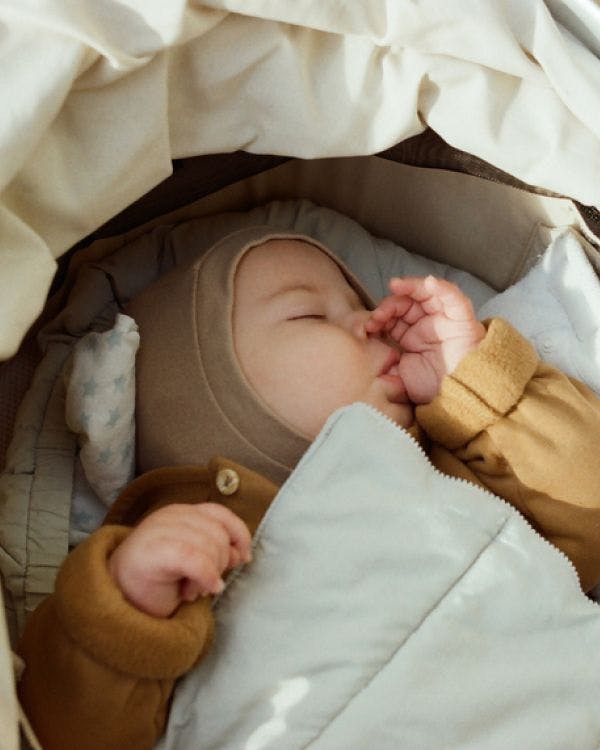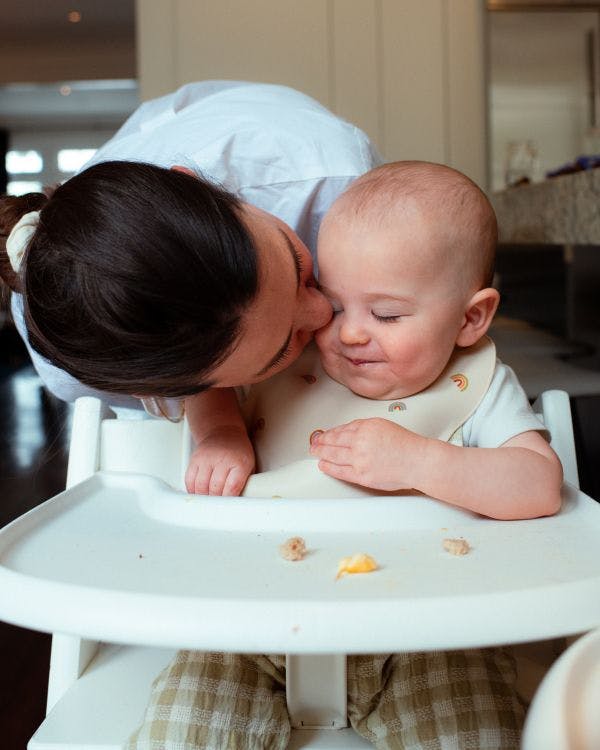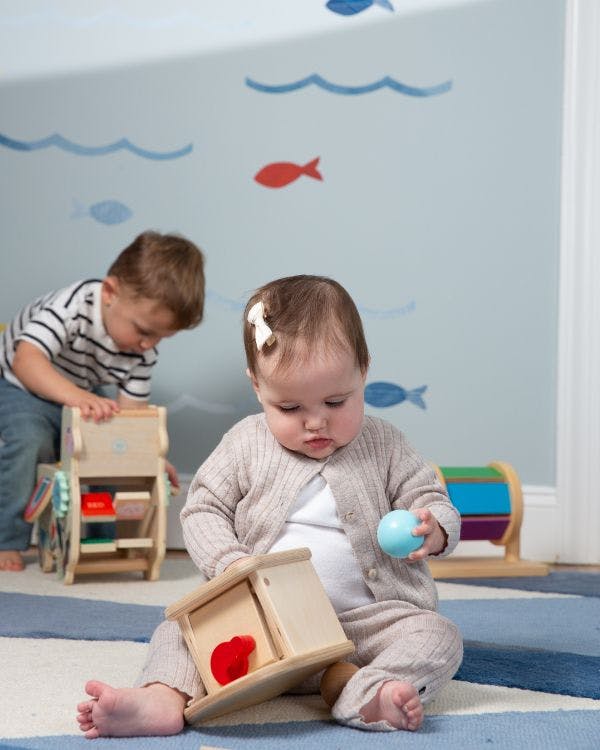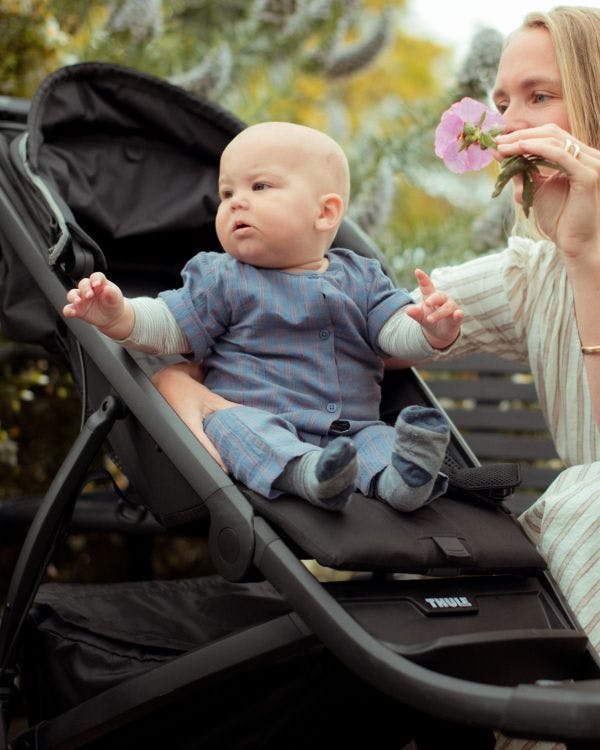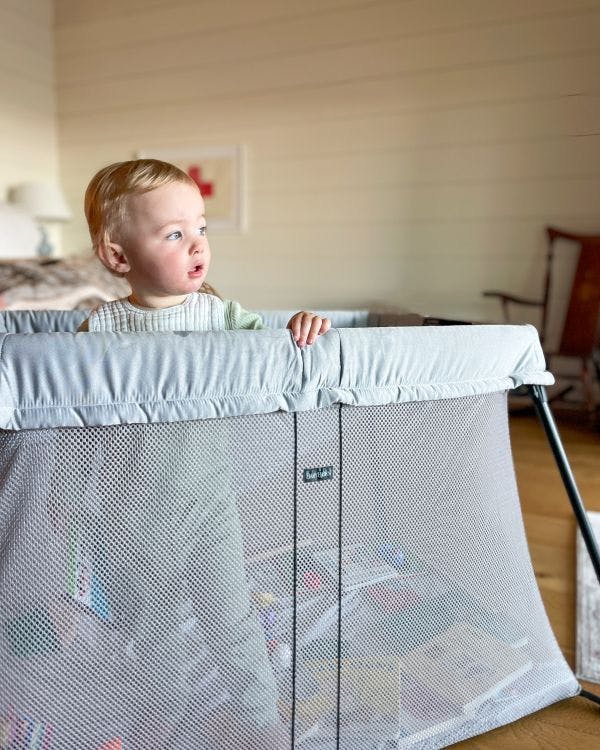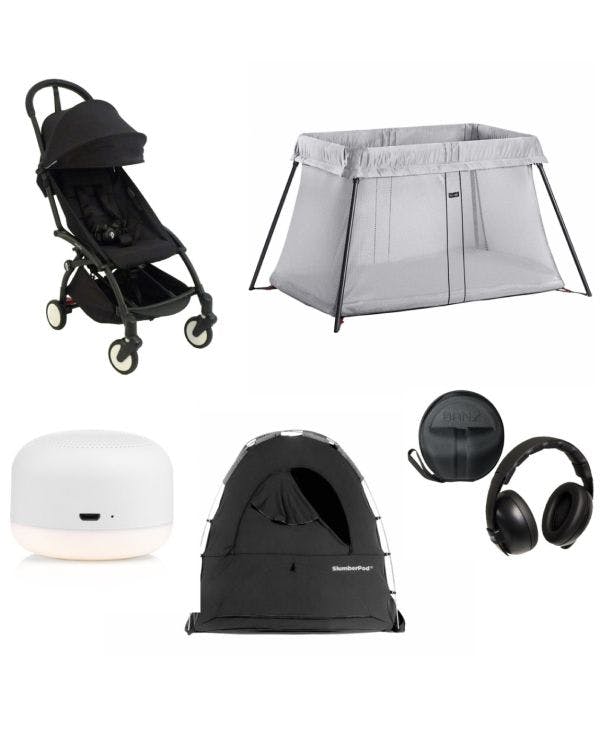LOOPLIFE
>
HOW TO DEAL WITH 6 MONTH SLEEP REGRESSION
FROM LOOP HQ

How to deal with 6 month sleep regression
Written by: Amy Roach
Published: December 16, 2022
Here’s an all-too-common scenario: you’re finally getting into a little groove with your newborn where they are sleeping reliably for most of the night and you couldn’t be more grateful for your newfound Zzzs. Then, baby hits six months and suddenly it’s like the clock turns back to the earliest days! You’re rubbing your eyes and shaking your head and wondering, why does my baby wake up crying?
Welcome to the 6 month sleep regression.
When it comes to figuring out how much does a 6 month old sleep, it’s impossible to discount the importance of the common 6 month sleep regression. It doesn’t happen to all babies, but if you’re dealing with this sleep disturbance right now, you’re far from alone. What do you need to know about the 6 month sleep regression? Follow along for some important background information.
In this article:
- What is the 6 month sleep regression?
- What causes the 6 month sleep regression?
- How much does a 6 month old sleep?
- Tips for healthy sleep
- What is the 6 month sleep regression?
This temporary—and thankfully usually short-lived—disturbance is a setback in baby’s process toward a normal, healthy night’s sleep. The sleeping difficulties that rear their ugly head around this time include:
- Baby waking up more frequently at night
- Having greater difficulty in getting back to sleep
- New or additional issues falling asleep initially
- Longer or more frequent daytime naps with less nighttime sleep
- More crying or agitation during awakenings
Not every baby will experience every one of those symptoms during a 6 month sleep regression. And, not all babies will experience them for the same amount of time. Usually, these sleep problems resolve within a few weeks, especially if mom and dad implement healthy sleep routines. (If your baby’s sleep regression lasts more than a month or two, contact your pediatrician to discuss.)
What causes the 6 month sleep regression?
The six-month mark is a time of great development for babies, who hit many new milestones at this point. At this age, your little one is learning new motor skills, starting with baby talk, experiencing significant physical and mental growth, becoming more aware of their environment, and even gaining physical abilities like rolling over or sitting up. All of this stimulation, experts say, can lead to changes in your baby’s sleep patterns.
These newfound skills and abilities are exciting to baby—maybe more exciting than sleep! So, causes of the 6 month sleep regression include baby’s desire to be awake and experience these new sensations, as well as their heightened sensitivity to things like overstimulation, separation anxiety, and other things that impact the duration and quality of their sleep.
How much does a 6 month old sleep?
When you’re not dealing with the 6 month sleep regression and endlessly asking yourself, Why does my baby wake up crying?, your 6 month old can actually be a pretty good sleeper. Most babies at this age go through sleep consolidation, giving up a few hours of daytime sleep for greater nighttime sleep. The American Academy of Pediatrics recommends between 12-16 hours of sleep in total each day for babies at 6 months.
Tips for healthy sleep
When you’re in the midst of a 6 month sleep regression, it’s normal to be desperate for a solution. Overall, promoting healthy sleep habits in baby will help both with the regression stage, and moving forward. Here are some helpful tips:
- Follow a regular sleep schedule. Create stability in your baby’s sleep patterns by sticking to a regular time for naps and bedtime.
- Use a consistent bedtime routine. Follow the same pattern each naptime and bedtime to signal to your little one that it’s time to sleep. Typical sleeptime routines include bath, feeding, and calm activities like rocking, reading a book, and cuddling to wind down.
- Minimize distractions. Make sure baby’s sleep area is primed for sleeping: it should be quiet, dark, and calm. It’s not always possible to control outside noise and disturbances, so a noise machine (like the Hatch Rest+) may help.
- Put baby in bed sleepy—but not asleep. To make sure baby learns to fall asleep on his or her own, it’s important to place them in their crib when they are tired but still awake.
How Loop Can Help
Loop is here to help take some of the stress out of those difficult, six-month-old parenting days. We have an amazing list of top-rated baby sleep products for rent on our site. By renting baby gear you'll save money, time, and space in your home. Browse Loop's products, pick a plan, and start renting products right away! It's that easy.
You might also like

Annual Warehouse Sale

Summer of Loop

Stroller Showcase

